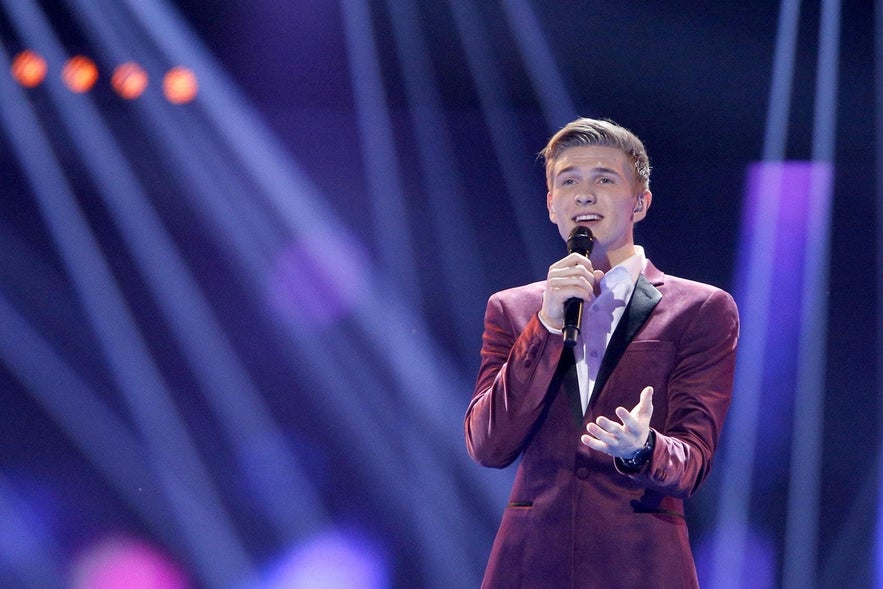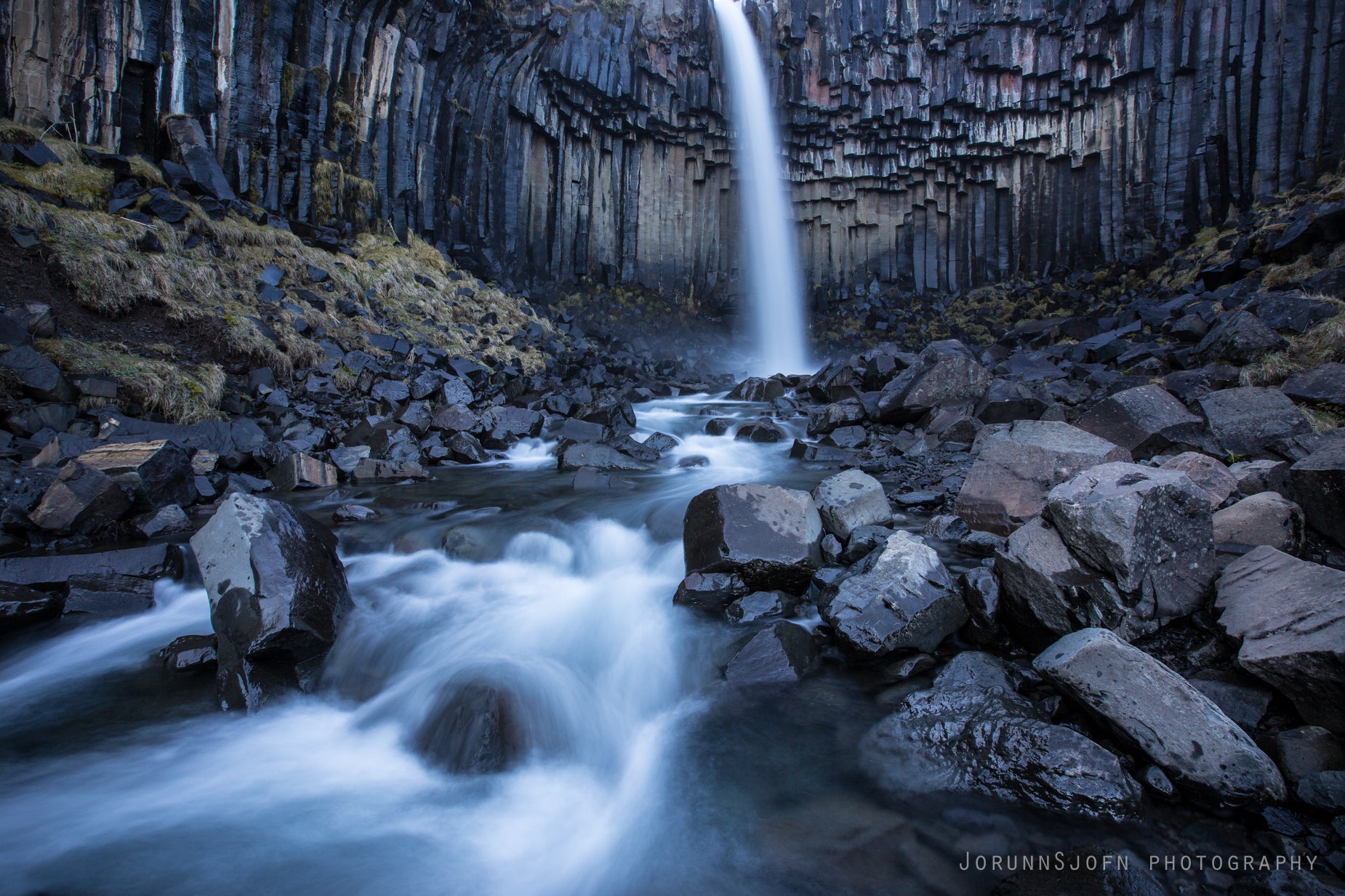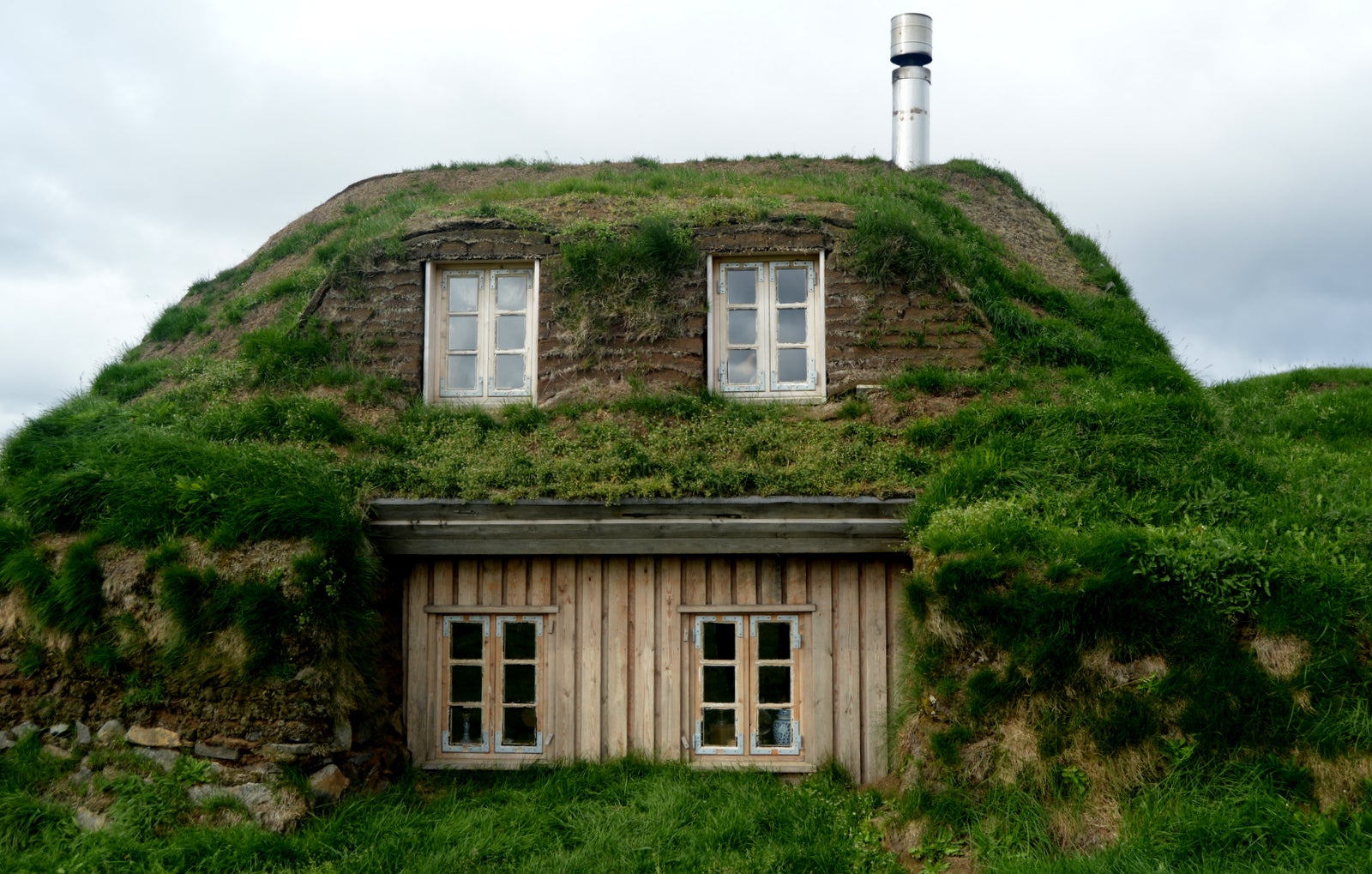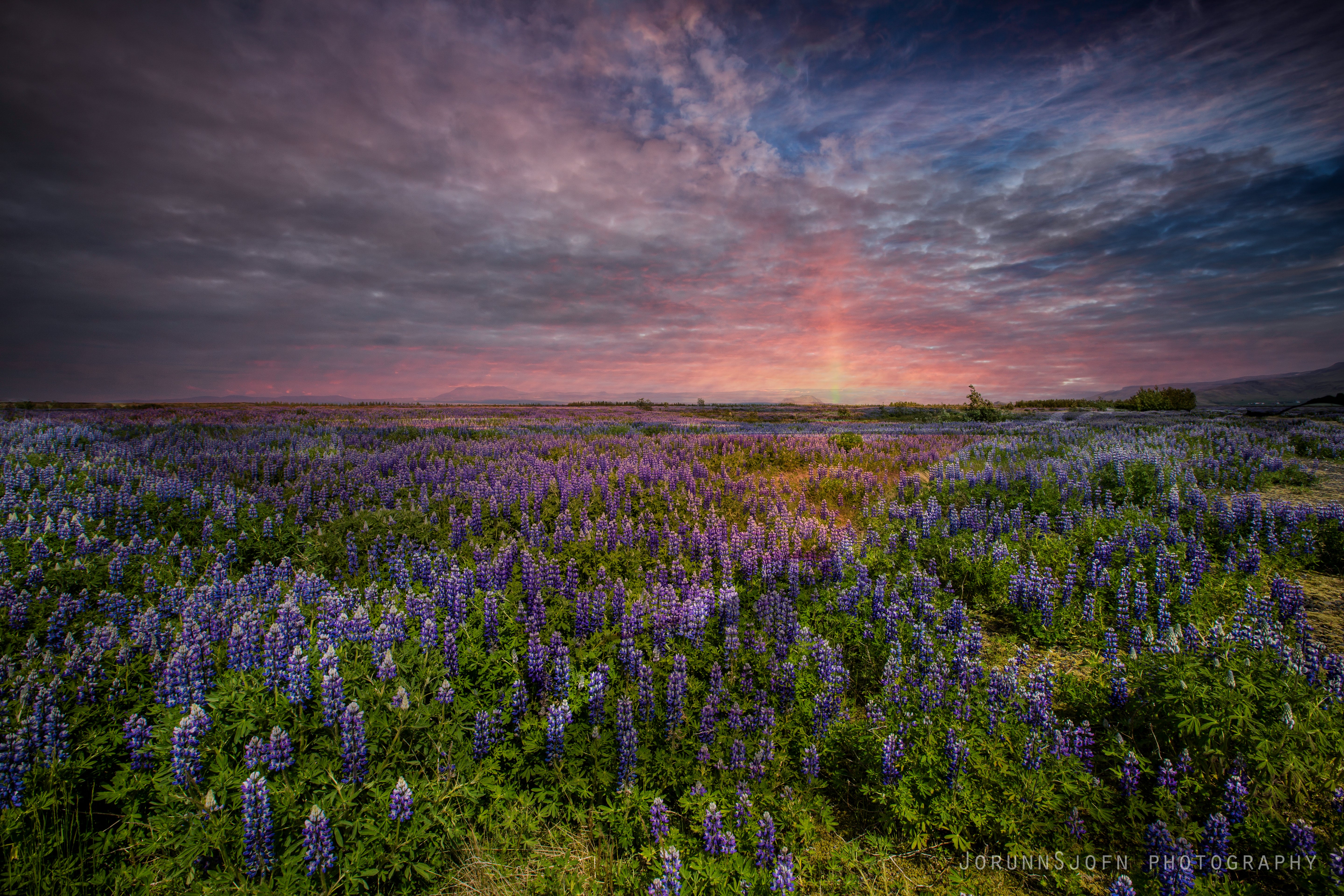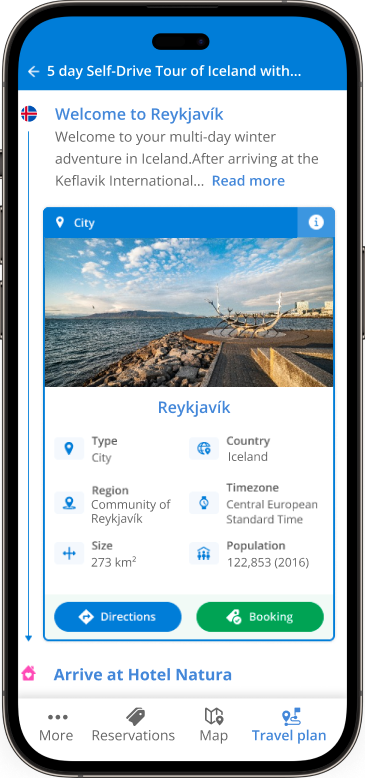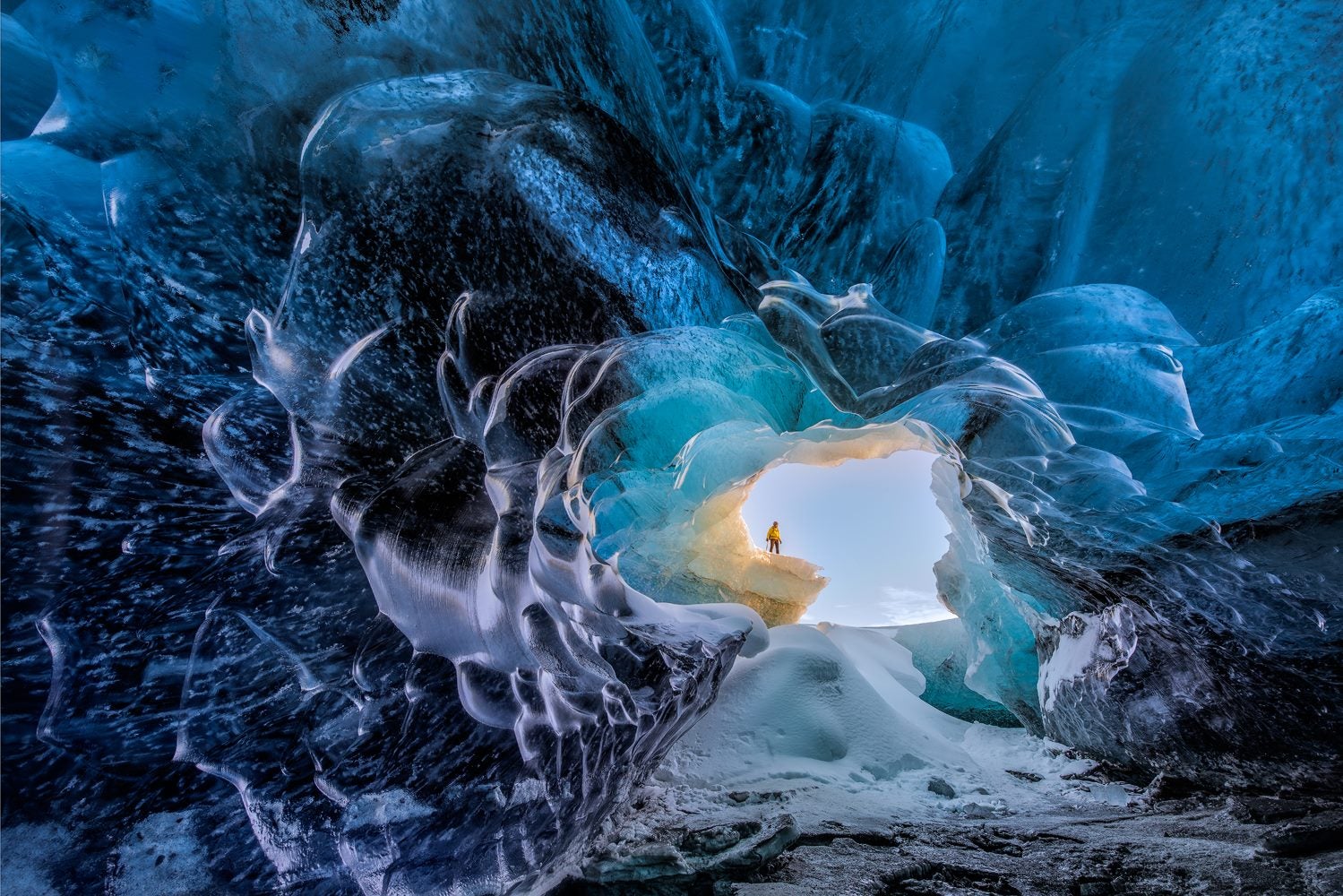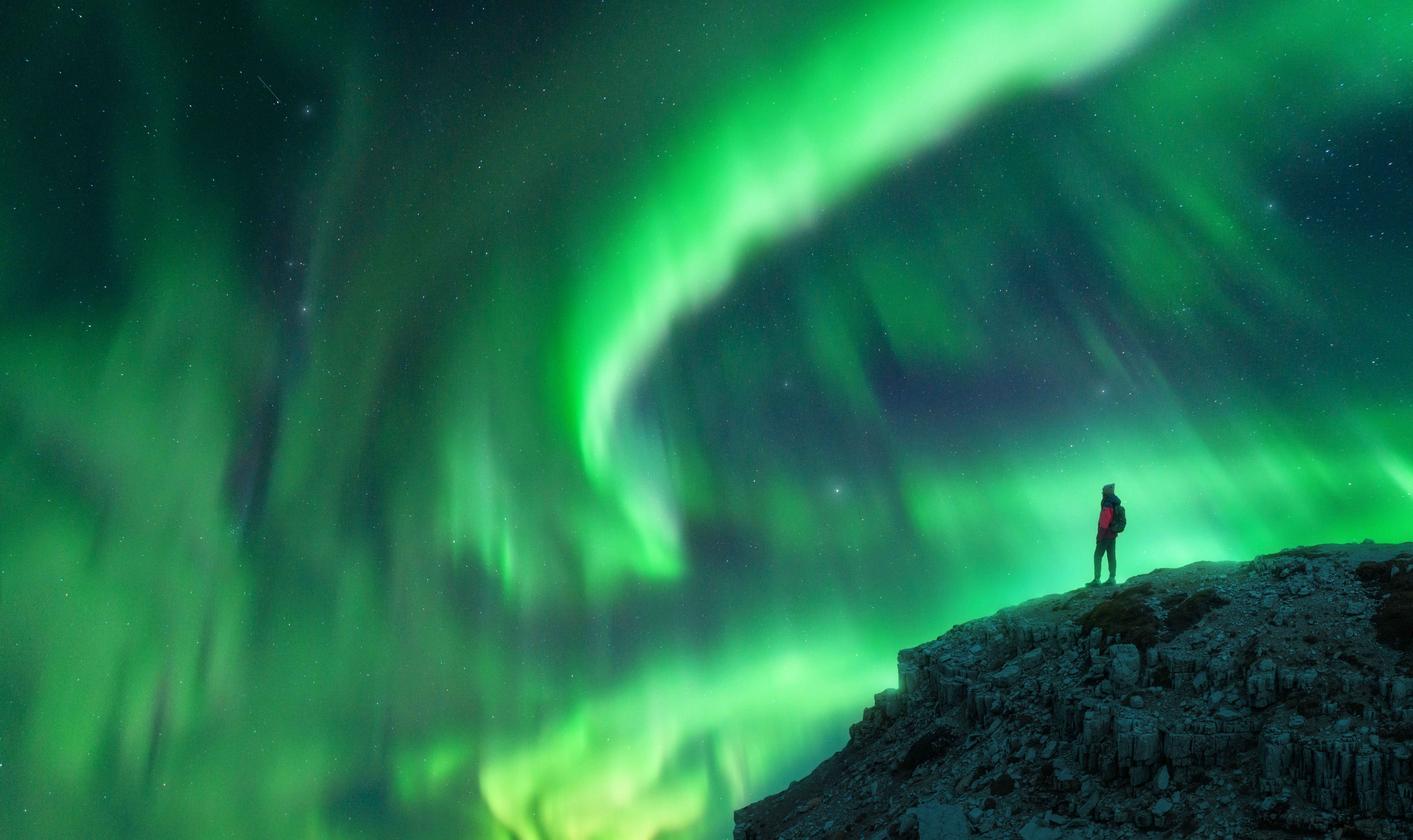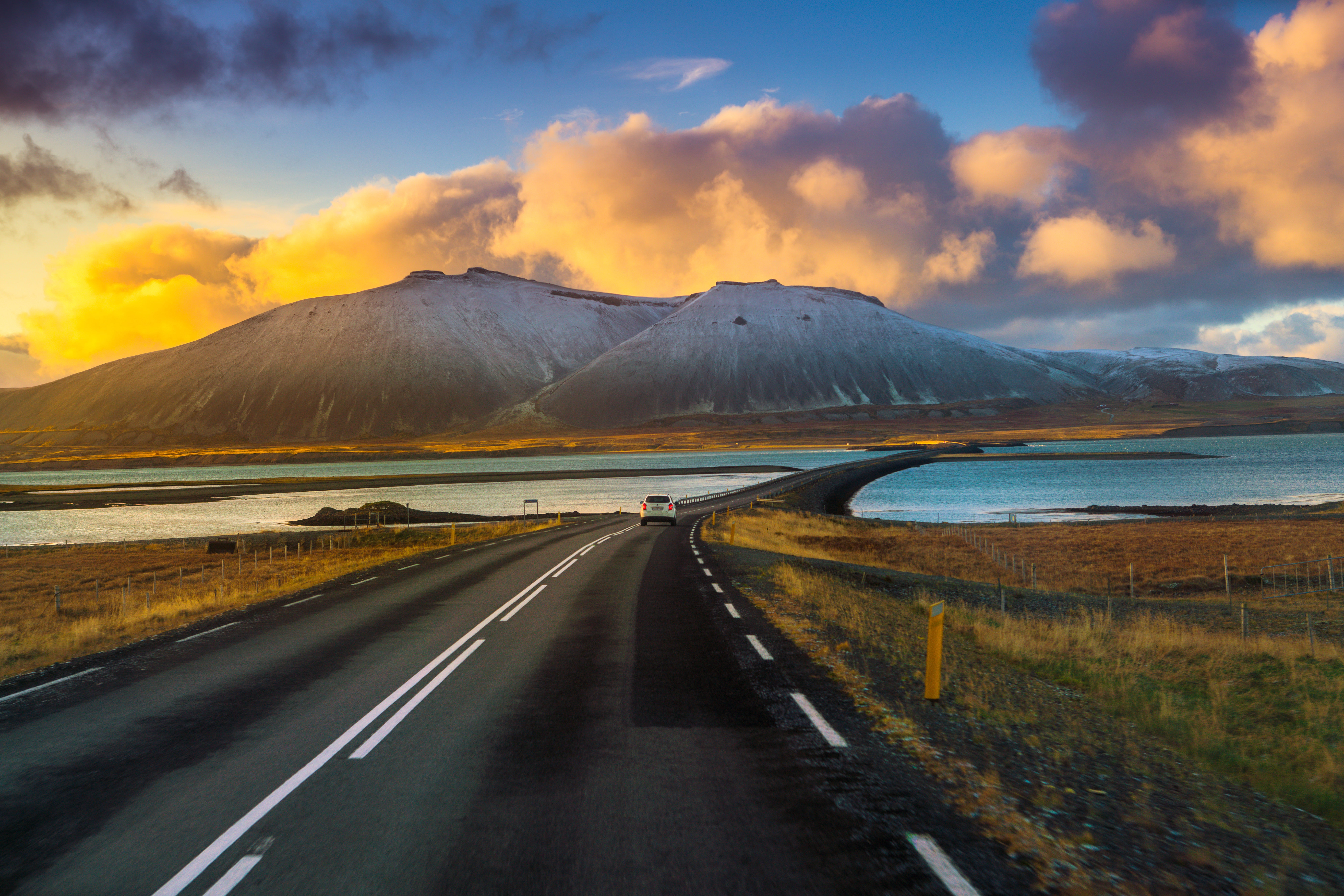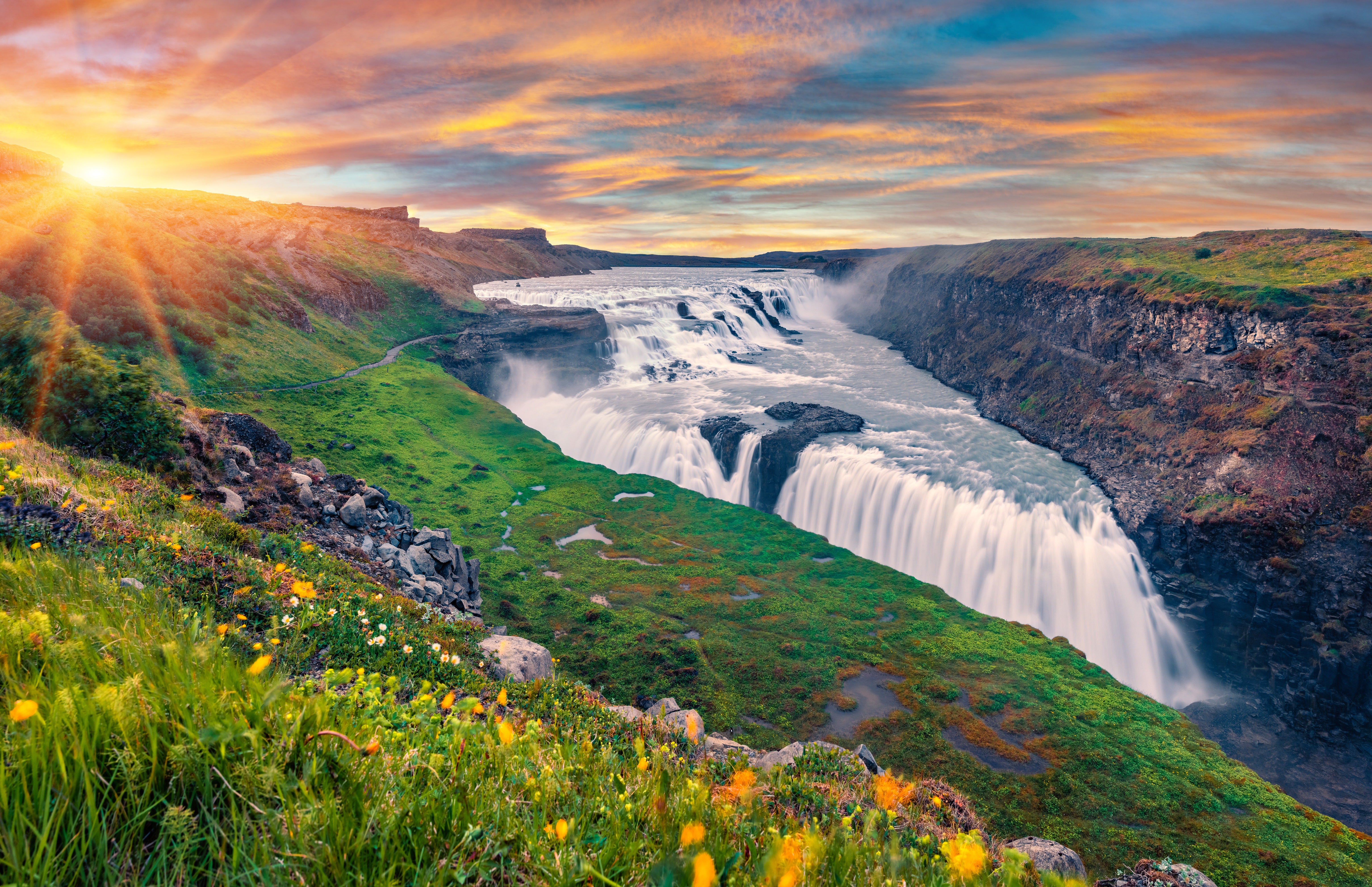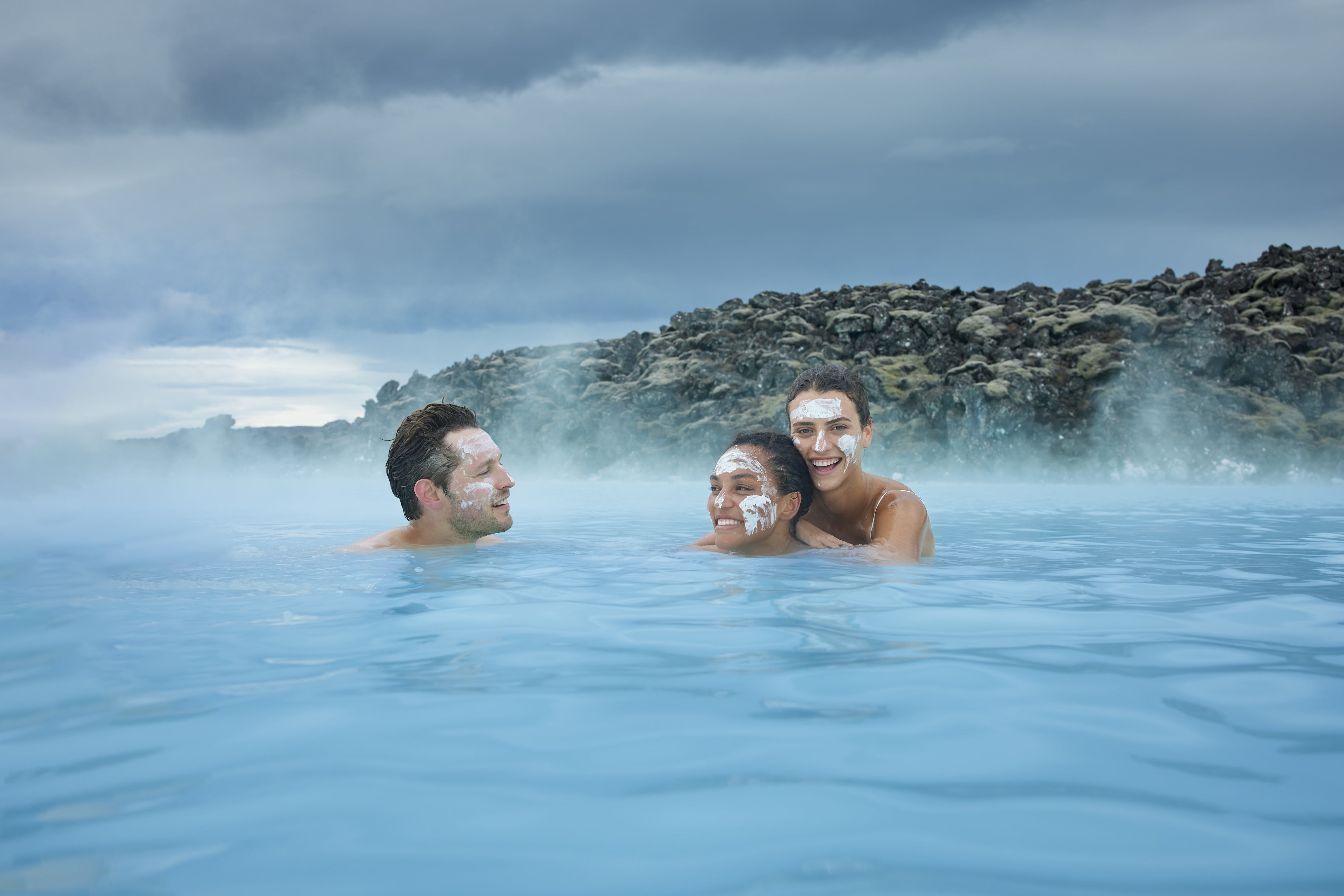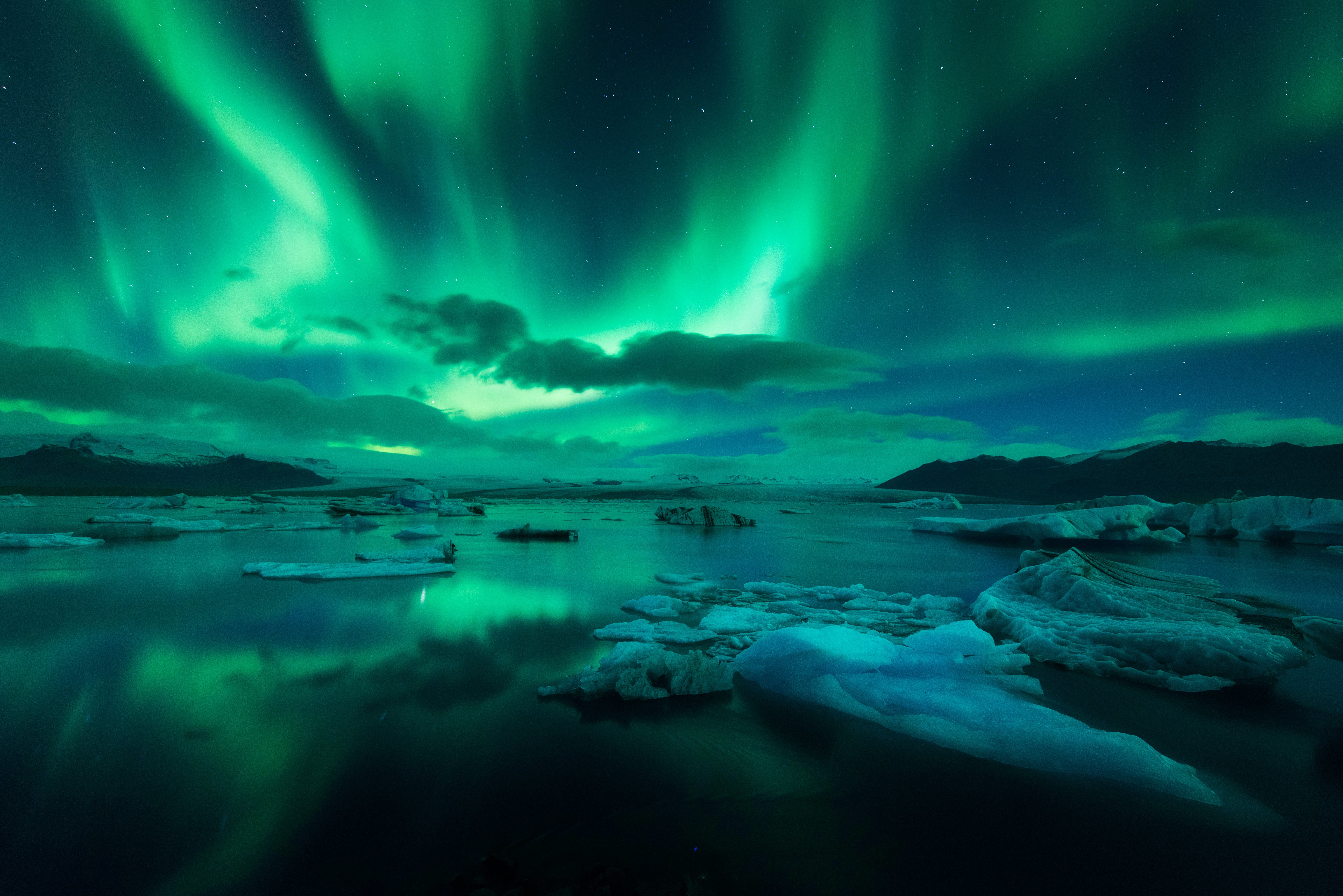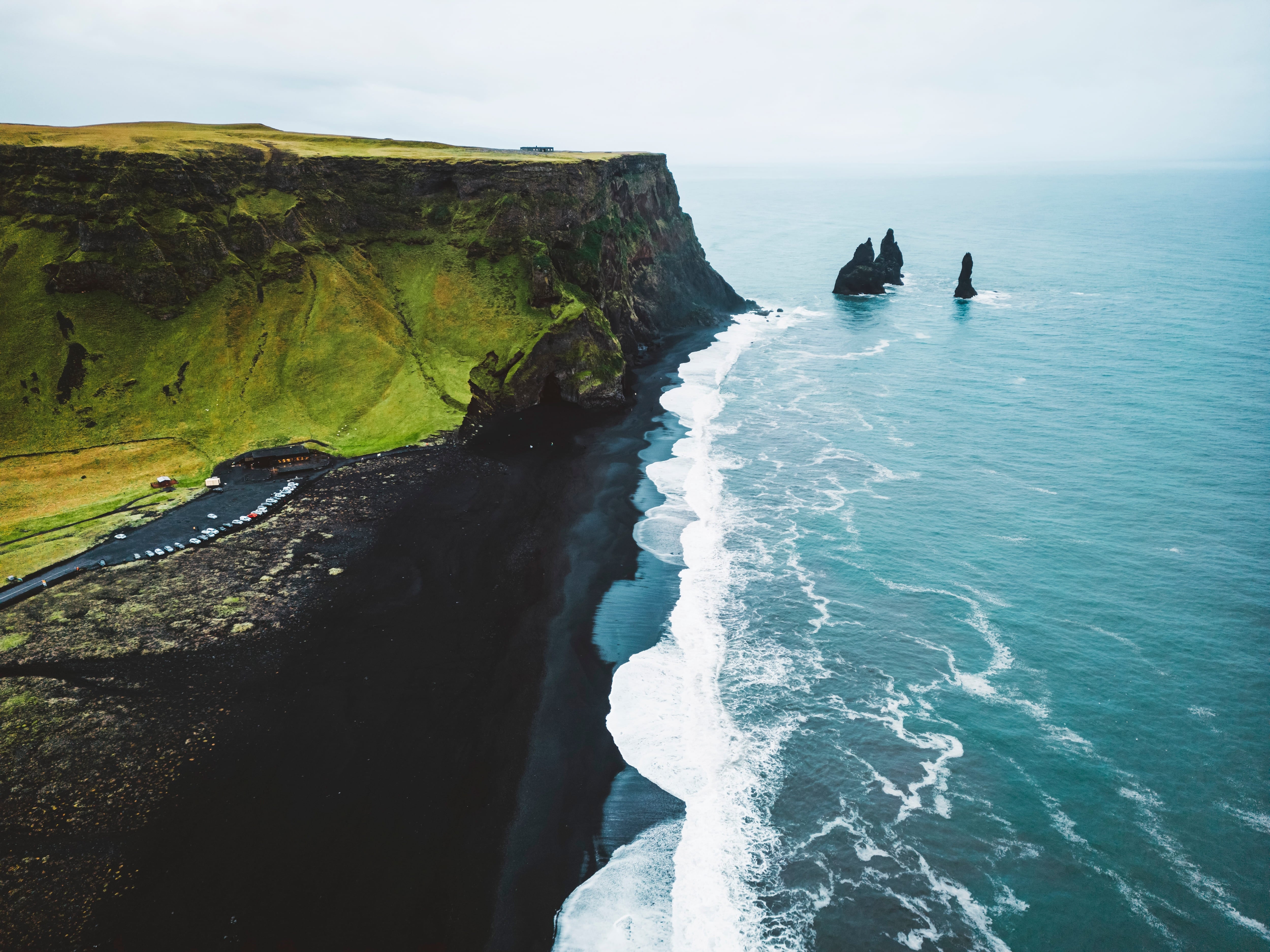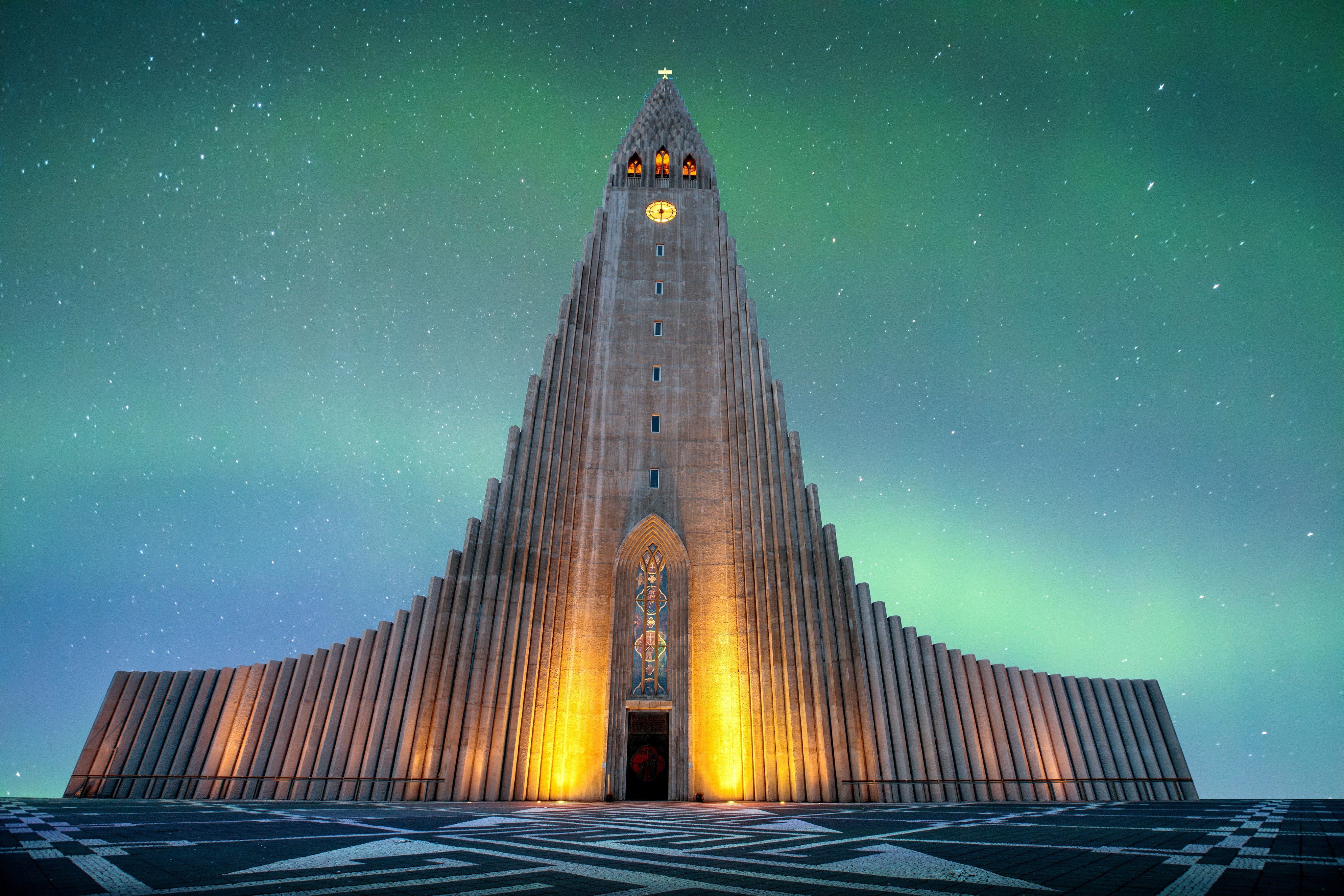What is Eurovision? Why is Iceland obsessed with this song competition? Why is Australia in a European song contest? Find out all you need to know about Iceland's Eurovision Song Contest history here!
The next Eurovision Song Contest competition takes place in May 2018 in Portugal for the very first time. Semi-finals will be taking part on Tuesday the 8th of May (with Iceland competing) and Thursday 10th of May and the finals will be on Saturday 12th of May.
For those that live outside Europe and don't know what Eurovision is, it's an annual song contest that dates back to 1956. The year 2015 marked the 60th anniversary of the contest. Above you can see all previous winners.
The song that's probably most internationally famous from this competition is Waterloo with ABBA, that won back in 1974. The following old school clip shows you just how amazing their costumes were, note that they won only with 24 points. Today's winning songs get around 300 points, as the voting system has completely changed over the years.
Eurovision is broadcast live on TV all over Europe and watched by millions of people each year. In recent years, the entries have become more and more outrageous and the competition is very popular amongst the LGBTQ+ community.
For some reason it's also very popular in Australia - and in recognition of that and to commemorate its 60th anniversary, Australia was invited to take part in 2015. It was supposed to be a one off, but the friendly ties were so strong that Australia is now a permanent competitor in Eurovision.
- See also: Gay Iceland: All You Need to Know.
It's also immensely popular in Iceland and has been ever since Iceland first took part in 1986.
Some songs have been translated into Icelandic and people might not even know that their origin is from Eurovision, such as the winning song from 1964, Non Ho L'Eta, which is now a classic song in Icelandic, translated as Heyr mína bæn and sung by one of Iceland's most renowned singers, Ellý Vilhjálms.
In fact, Eurovision is so popular in Iceland that a whopping 99% of Icelanders watch Eurovision!
As a result it has a large affect on the nightlife in Reykjavík, with the streets being completely empty between 7pm and 10pm when the competition takes place, but completely packed shortly afterwards. And when Iceland does really well, such as it did in 1999 and 2009, then Eurovision night is a party night you don't want to miss out on.
Many people don't understand the joy of Eurovision, and complain that the songs aren't that good or that their country of origin never wins. People from the UK say that a lot (despite the UK being one of the most successful countries to take part in Eurovision, having won it 5 times, their last win was in 1997).
Of course doing well makes it more fun, but for Icelanders making it through to the final competition, and anything above the 16th place is a success. And if we do end up in the top 10 places, then the nation immediately starts claiming that we had the best song all along and we strut around with our heads high whistling the 'winning song'.
But in my opinion, Eurovision isn't about great songs (although some of them are really great, admittedly the majority is pretty rubbish) and definitely not about winning (since Iceland has actually never won). It's all about the show itself and the company you have while watching it.
The colourful costumes and ridiculous extras (giant man on stage, a group of grandmothers, ice skating champion, epic sax guy... the list is endless.) It's a great excuse for a party and a bbq and for gathering international friends together since they're all rooting for different countries.
Eurovision marks the start of summer and is therefore the best party night of the year. As a bonus, following it on Twitter (Icelandic Eurovision hashtag is #12stig) is an additional source of laughter.
Here I'm going to focus on Iceland's history with Eurovision (if you want to read more about other countries, you can find endless amounts of material online!)
- See also: Top 10 Festivals in Iceland
1986 - Gleðibankinn
Iceland's entry in 1986 was Gleðibankinn ('The Bank of Joy' - quite ironic if you think about it). It was performed by ICY (yes, the tackiest name they could've come up with).
The nation was convinced we would win with this amazing song and equally shocked when we didn't. It only placed number 16 out of 20 entries. Take a look at this clip and tell me this is not a winning song!
1987 - Hægt og hljótt
We've been trying hard since - but never actually won it (which is probably a good thing because the country would get bankrupt, again, if we were to hold it in Iceland).
The following year, in 1987, we sent in a ballad called Hægt og hljótt (Slowly and Quietly), sung by Halla Margrét, again placing us at the dreadful number 16, out of 22 entries.
1988 - Þú og þeir (Socrates)
In 1988 it seems that Icelanders thought what was holding us back from getting votes from Europe was our difficult language that no-one understands (1986's winning song was in French, J'aime la Vie from Belgium and the winning song in 1987 was in English, Hold Me Now with Johnny Logan from Ireland).
At the time, countries were obliged to sing songs in their own language. So we sent in a song with lyrics that make no sense but instead just name-drop as many celebrities as is humanly possible, in the hope that the European juries would give us points since they've heard of Socrates.
The song is called Þú og þeir (Socrates) or You and They (Socrates) and is performed by Beathoven (that's not a spelling mistake, they're just clever like that).
It didn't work though, as we placed number 16 yet again, out of 21 entries. The number 16 became a hated number amongst Icelandic Eurovision fans, as the nation suffers from a small nation complex and can't deal with being unsuccessful. Try to count all the name drops! (Tip, first two lines are 'Ég dái Debussy, ég dýrka Tchaikovski' - (I admire Debussy, I adore Tchaikovski)...).
1989 - Það sem enginn sér
1989 marks the year that the number 16 was seen as not too bad, as this year Iceland came last at number 22 with 0 points. The song was called Það sem enginn sér (What No-One Sees), a more apt title would've perhaps been Það sem enginn heyrði (What No-One Heard).
What makes this year's entry even more funny today is that it is sung by Daníel Ágúst, who's perhaps a bit more known for being the lead singer of Ný Dönsk and also Iceland's no. 1 electronic pop band, GusGus.
1990 - Eitt lag enn
Finally in 1990 we did pretty well and got pretty close to the top spot, as we ended up in the 4th place with Eitt lag enn (One More Song), sung by Sigga Beinteins (Sigríður Beinteinsdóttir) and Grétar Örvarsson, in the band Stjórnin.
Sigga Beinteins immediately became the celebrated Eurovision Queen of Iceland, returning to the competition in years to come.
There's a great entry about Iceland here as well:
1991 - Draumur um Nínu
In 1991 Iceland sent one of its most popular Eurovision entries, that still today gets sung at every guitar party in the country, Draumur um Nínu (A Dream About Nína) - more commonly known as just Nína - sung by Stefán & Eyfi. The jury didn't seem to agree with the Icelandic nation as the song placed close to the dreaded 16th place, it ended up being number 15th out of 22 countries taking part.
Note: If you're ever in an Icelandic guitar party and this song is being sung, just make sure that you take part in the 'OH' that happens on 2:30 in the video below. (And don't confuse it with the previous chorus, it only happens once in the song).
1992 - Nei eða já
After a disappointing result in 1991 and still on a high from 1990's success, Iceland sent Sigga Beinteins to Eurovision again in 1992. This time Sigga performed with Sigrún under the group name 'Heart 2 Heart', performing Nei eða já (No or Yes), picking Iceland up to 7th place.
Another great introduction to Iceland in the start, don't you just love how 90's the images and background elevator music is?
1993 - Þá veistu svarið
In 1993 Iceland sent popular singer and actress Inga (Ingibjörg Stefánsdóttir) with the song Þá veistu svarið (Then You'll Know the Answer). Unfortunately, it didn't do too well and ended up in 13th place out of 25.
In my opinion Inga's outfit has aged pretty well (especially considering this is from 1993!), she's wearing a pretty great dress (a bit reminiscent of Kate Hudson in How To Loose a Guy in 10 Days). But notice the choker that she (and all the backing vocals) are wearing, this was a massive trend in Iceland at the time! Eurovision is such a great way to see how fashion, music trends and performance trends change over years!
1994 - Nætur
As Inga didn't do too well in 1993, Iceland went back to what worked in the past and sent Sigga Beinteins to compete for the third time, this time on her own with the song Nætur (Night). Third time lucky, right?
Unfortunately not, as this time we ended up in 12th place out of 25. This song is a lot less catchy than her previous entries, a sort of a semi-ballad, perhaps that's why. Or maybe it's because she's no longer wearing a dress that's a striking colour.
1995 - Núna
1995 saw another ballad that didn't fare too well and I'm not surprised (in my opinion a very forgetful song and one of Iceland's worst entries).
It's called Núna (Now) and is performed by Björgvin Halldórsson, one of Iceland's most famous singers. Björgvin is also known as Bo Halldórsson, or just Bo Hall (easier for international audience members). It ended up in 15th place, out of 23. I don't really have anything else to say about this song.
1996 - Sjúbídú
1996 was another spectacularly bad entry on Iceland's half, with some English name drops (Elvis, Love Me Tender, Billie Holiday etc) and a title that doesn't mean anything.
Non-English speaking countries had done well in the past, such as Spain's winning song La-La-La in 1968, The Netherland's winning entry Ding-A-Dong in 1975 or Sweden's winning entry Diggi-Loo-Diggi-Ley in 1984.
The Icelandic Sjúbídú (Shoobee-doo), performed by Anna Mjöll did end up surprisingly high considering how 'good' the song is, still only in 13th place out of 23 entries.
1997 - Minn hinsti dans
That takes us to my favourite Icelandic Eurovision entry, 1997's Minn hinsti dans with Páll Óskar, Iceland's king of pop and disco and in my opinion, the sexiest man in Iceland.
The song and its performance was quite controversial, as Páll Óskar is clad in latex as well as his female dancers and they performed 'kinky gestures and adopted sexually suggestive poses' (Wikipedia). Today it doesn't seem overly sexual, especially if you compare it to Poland's entry in 2014.
Páll Óskar's song was lightyears ahead of its time (or, perhaps only one year ahead of its time, when you consider that the following year televoting started and Dana International, an Israeli drag queen, won that round with her song Diva).
Televoting started in only a few countries in 1997 - all of which voted for Iceland. It wasn't enough though, as the song ended up in 20th place out of 25 entries. The contest was also becoming too popular and too many countries wanted to take part (this is before they started doing semi-finals before the main competition), meaning that the countries with songs in the bottom missed their right to perform the following year.
Still today, Páll Óskar's entry frequently pops up as one of the sexiest entries of Eurovision history - and he definitely broke some boundaries with this entry!
1998 -
We didn't have a song in 1998, since the 1997 entry was too shocking and didn't get enough points for Iceland to take part in 1998.
1999 - All Out of Luck
Iceland was back with a vengeance in 1999. The rules had been changed, voting was now solely in charge of people at home voting through their telephones and countries were allowed to sing in whatever language they wanted.
Iceland opted for a song in English, the pop song All Out of Luck sung by actress/singer Selma Björnsdóttir. This year proved to be the year that Iceland wasn't all out of luck, as it came second with 146 points, only 17 points behind Sweden. Note the amazing background dancers and their trenchcoats!
2000 - Tell Me!
After the success of the upbeat song the previous year, Iceland decided to send another upbeat song, Tell Me!, performed by August & Telma.
This one wasn't as successful as the previous song, ending up in 12th place. A big fuss was made about August's wardrobe in Iceland as he wore a skirt, matching Telma's outfit.
2001 - Angel
Oh wow, I forgot about this one. Another terrible entry on Iceland's half that ended up with 3 points in the end. Angel was performed by Two Tricky and ended up in 22nd/23rd place, equal last with Norway.
Again, Iceland was relegated from the contest the following year, as the contest was rapidly expanding.
2002 -
We didn't have a song in 2002, since Angel performed so badly in 2001.
2003 - Open Your Heart
In 2003 Iceland sent Birgitta Haukdal, the nation's sweetheart at the time (she was EVERYWHERE) to perform Open Your Heart.
It didn't do too badly, ending up in 8th place. By this point Eurovision had introduced semi-finals for the main competition - and the songs in the top 10 places automatically got to go to the final competition the following year.
2004 - Heaven
Iceland went straight to the finals in 2004, due to 2003's success. Unfortunately we didn't make the most of it and sent in this snoozefest of a song, where Jónsi (not the Sigur Rós famous Jónsi, another one) is completely alone on the stage and only moves once during the song (where he takes three animated steps to the side at 2:13). The song ended up in the 19th place out of 24 entries.
Interesting info: Apparently Jónsi asked that the camera would not show him up close as he hits the high notes since the veins in his neck pop out quite a lot and make him look a bit freaky.
2005 - Semi Final - If I Had Your Love
Seeing as the 2004 performance only ended up in 19th place, Iceland had to go through the semi-final competition in 2005. We decided to send Selma back, that earned Iceland second place in 1999.
Again, she was performing an upbeat song in English, If I Had Your Love but unfortunately the song didn't make it to the final competition from the semi-finals as it ended up in 16th place (that damn number 16 once again!) out of 25 in the semi-finals. What a shame.
2006 - Semi-finals - Til hamingju Ísland / Congratulations
2006 marks Iceland's most controversial song (even more controversial than Páll Óskar's entry in 1999).
There are so many things to be said about the Icelandic 2006 entry. The song was performed in English as Congratulations, although in my humble opinion the lyrics are even better/funnier in Icelandic as Til hamingju Ísland. Here's the Icelandic version:
The song was performed by a fictional character, Sylvía Nótt - or Sylvia Night, performed by an Icelandic actress by the name of Ágústa Eva Erlendsdóttir. The fictional character mocks stereotypical commercial self-obsessed types and Iceland's entry this year could be likened to the UK sending in Sacha Baron Cohen's character of Brüno, Ali G or Borat.
Some people got the joke, some people didn't. The song didn't make it out of the semi-finals, ending up in 13th place out of 23 in the semi-finals. Notice the 'boo-ing' at the start and finish! Hilarious.
2007 - Valentine Lost
Iceland didn't make it out of the semi-finals for the third year in a row in 2007, when we sent Valentine Lost with Eiríkur Hauksson.
If you think Eiríkur's face looks familiar, it's because he's performed for Iceland before. If you scroll back to the top and watch Iceland's first entry in 1986, then you'll see how little Eiríkur has changed over the years.
2008 - This is My Life
Finally Iceland made it back into the final competition with This is My Life, performed by Eurobandið (the Euro band), that consists of the singers Friðrik Ómar and Regína Ósk. The song came 8th in the semi-finals and ended up being number 14 in the finals.
2009 - Is it True?
Although Jóhanna Guðrún (Yohanna) was arguably wearing one of Eurovision's ugliest dresses, she managed to match Selma's success in 1999 and placed second with her song Is it True? in 2009.
The performance is a bit 'Frozen'-esque - something that was repeated in 2015's performance. (Princessy dress and a Disney kind of melody). To date, 1999 and 2009 are Iceland's best results in Eurovision.
Maybe 2019 will be a good year?
2010 - Je Ne Sais Quoi
2010 was one of my favourite Eurovision years, not necessarily because of the entries but because I went to the live competition that was held in Norway.
Fortunately Iceland made it through the semi-finals with Je Ne Sais Quoi that was performed by Hera Björk, Iceland's first song that had a title in French. Unfortunately the song didn't receive many points and ended up in the 19th place.
2011 - Coming Home
2011 marked a different approach to Eurovision from Iceland, as it sent a group of guys called Sjonni's Friends with the song Coming Home. The backstory is very sentimental.
A well respected Icelandic singer, called Sjonni Brink, had made the song and entered it into the Icelandic pre-selection. He then sadly passed away from a sudden stroke but 6 of his best friends started this impromptu band to sing his song in his memory and won the preselection, beating the likes of Yohanna who was the runner up in 2009.
The song made it through the semi-finals but only finished at the 20th place in the final competition.
2012 - Never Forget
Never Forget made it through the semi-finals but became slightly forgettable in the main competition as it only reached the 20th place.
It was performed by Jónsi (who also performed in 2004) and Gréta Salóme. Again Jónsi didn't move much on the stage (although I do find this song better than Heaven, that somehow ended up doing slightly better than this one).
2013 - Ég á líf
Iceland finally decided to send a song into the competition in Icelandic, something they hadn't done since the rules were changed and any language was allowed. Eyþór Ingi sang a ballad called Ég á líf (I Have a Life).
Since 1999 all of Iceland's songs had been in English (and one with a little bit of French). Not one of my favourites (I just don't like the ballads!) but quite a popular song in Iceland. Not so popular in the rest of Europe since it made it through the semi-finals but only finished at number 17 in the finals.
2014 - No Prejudice
Apparently the Icelandic language still doesn't work well so in 2014 we went back to English. That didn't work out much better.
Pollapönk performed a song called No Prejudice for Iceland in 2014, dressed in multicoloured suits that kind of reminded me of the teletubbies. They made it through the semi-finals but only placed at number 15 in the finals.
2015 - Unbroken
María Ólafs performed Unbroken. Iceland didn't make it out of the semi-finals, so the song wasn't performed in the finals. Out of 17 countries in the second semi-final it placed number 15. I suppose anything is better than the 16th place! ;)
To be honest, I was mainly excited about the Icelandic intro in 2015 (the short bit before the song starts where the song and performer and the country is introduced. They called it a postcard that year.) This year there was a 'door theme' in the intro - and my parent's front door was on display! Finally - a member of the family taking part in Eurovision.
So here's the exciting bit about the 2015's entry (look at that beautiful door where María gets her package delivered!)
And here's the actual performance.
2016 - Hear Them Calling
In 2016 Iceland sent Gréta Salóme to perform Hear Them Calling. This was Gréta's second time in Eurovision as she also performed in 2012 with Jónsi, but this time she got the stage to herself.
Unfortunately the background visuals weren't enough to save Iceland this year though (especially as another contestant had similar, but much better, background visuals), as the song didn't make it out of the semi-final, ending up in 34th place out of 42.
2017 - Paper
In 2017 it was time for Paper with Svala. Icelanders crossed their fingers for Svala to make it out of the semi-finals on Tuesday 9th of May, but sadly it wasn't enough and Iceland didn't make it to the final.
See also the hilarious blog by fellow local Wanda Star: A History of Constant Failure: Iceland and Eurovision, and note that it's satire (Svala herself likes it in the comment section).
2018 - Our Choice
Photo credit: Fréttablaðið/Andri Marinó
Hopefully 2018 Iceland has produced a song that makes it to the finals, it's just so much more fun to watch the finals when Iceland's in it, and we haven't been in it for 3 years in a row now!
The contender in 2018 is Our Choice sung by charismatic Ari Ólafsson. Do you think it will make it through to the finals? Only time will tell, as the song will compete in the first round of the semi finals on the 8th of May in Portugal.
Which Icelandic Eurovision song is your favourite? Let me know in comments!


